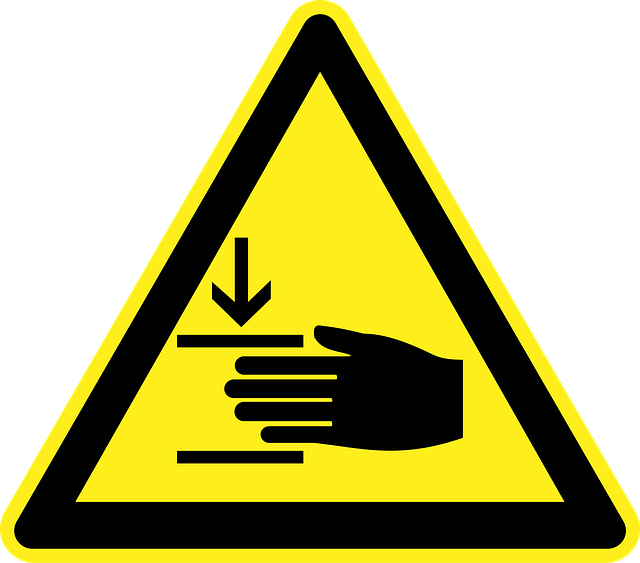Understanding Lost Wages vs Loss of Earning Capacity Claims

A lost wages claim compensates for financial losses due to injury or illness, including temporary or…….
In today’s dynamic economic landscape, the concept of ‘lost wages claim’ has emerged as a critical aspect of labor law and social welfare. This intricate process involves individuals or groups seeking compensation for wages that were either denied, delayed, or incorrectly calculated. The topic delves into the mechanisms, implications, and evolving nature of wage recovery, offering valuable insights for workers, legal professionals, and policymakers alike. By exploring various facets, from its historical roots to technological innovations, this article aims to provide a comprehensive understanding of lost wages claims and their profound impact on global labor markets.
Definition: Lost wages claim refers to the legal process through which individuals or entities can demand and recover unpaid or incorrectly calculated wages from their employers. It encompasses situations where workers have been subjected to wage theft, unfair labor practices, or contractual breaches resulting in financial losses.
Core Components:
Historical Context: The concept of lost wages claim has evolved over centuries, reflecting the changing nature of employment and labor laws. In ancient societies, workers had limited legal protections, making wage recovery a challenging endeavor. However, with the advent of industrial revolution and the rise of organized labor movements in the 19th and 20th centuries, significant strides were made to protect workers’ rights, including the right to fair wages. Modern labor laws in many countries have established minimum wage standards, overtime regulations, and mechanisms for dispute resolution, providing a legal framework for lost wages claims.
Significance: Lost wages claims are essential for maintaining fairness and justice within the workforce. They empower individuals to seek redress for financial injustices, ensure employers adhere to legal obligations, and contribute to a more equitable distribution of wealth. Furthermore, these claims can have far-reaching effects on labor market dynamics, encouraging businesses to adopt ethical practices and enhancing workers’ bargaining power.
The issue of lost wages is not confined to any specific region or country; it is a global concern with varying levels of intensity. Here’s an overview:
| Region | Impact and Trends |
|---|---|
| North America | The United States and Canada have robust labor laws, but wage disputes remain prevalent. Recent trends indicate a rise in claims related to misclassification of employees as independent contractors, leading to non-payment of benefits. |
| Europe | EU member states have strong worker protection laws, but enforcement remains a challenge. The European Commission actively monitors and addresses wage-related violations across the bloc. |
| Asia Pacific | Countries like Australia and New Zealand have effective wage recovery mechanisms. However, emerging economies in this region face challenges due to lack of legal awareness and weak labor enforcement. |
| Middle East & Africa | Some countries in these regions are witnessing increased claims, driven by growing awareness and strengthening labor laws. But overall, enforcement remains inconsistent, especially in informal sectors. |
International organizations like the International Labour Organization (ILO) play a crucial role in setting global standards for fair wages and working conditions. Their initiatives promote wage transparency, collective bargaining, and effective dispute resolution mechanisms, contributing to a more uniform approach to lost wages claims worldwide.
The economic landscape significantly influences the dynamics of lost wages claims:
Technology has revolutionized the landscape of lost wages claims, offering both opportunities and challenges:
The regulatory framework surrounding lost wages claims varies across jurisdictions, but key policies include:
Despite the importance of lost wages claims, several challenges and criticisms persist:
Proposed Solutions:
The future of lost wages claims is shaped by technological advancements, evolving labor market dynamics, and global initiatives:
The concept of lost wages claim is a testament to humanity’s ongoing struggle for economic fairness and justice. As the global workforce evolves, so too do the challenges and opportunities surrounding wage recovery. By understanding the historical context, exploring technological innovations, and addressing regulatory gaps, we can forge a path toward a more equitable future.
The examples and trends outlined in this article highlight the transformative potential of lost wages claims in shaping labor markets worldwide. As technology advances and awareness grows, the ability to recover lost wages will become increasingly accessible, ensuring workers receive fair compensation for their contributions.
Q: How long does it typically take to resolve a lost wages claim?
A: The timeline varies significantly. Simple cases may be resolved within weeks, while complex disputes involving legal challenges can take several months or even years.
Q: Can I file a claim if I am not a citizen of the country where the employer is based?
A: It depends on the jurisdiction and specific laws. Some countries allow cross-border claims, especially in cases of multinational corporations. Others may require citizenship or residency for legal redress.
Q: What happens if my employer refuses to pay the wages I claim are owed to me?
A: If your employer disagrees with your claim, you can explore mediation, arbitration, or filing a lawsuit. Each option has its own time frames and costs, so seeking legal advice is crucial for guidance.
Q: Are there any restrictions on the type of work for which I can file a lost wages claim?
A: Most labor laws cover a wide range of employment types, including full-time, part-time, temporary, and gig economy workers. However, independent contractors or freelancers may face different legal frameworks, and self-employed individuals might have limited options for wage recovery.

A lost wages claim compensates for financial losses due to injury or illness, including temporary or…….

In recent years, lost wages claims for contract and gig workers have gained prominence due to the ri…….

After an injury, individuals often face financial challenges, including navigating a lost wages clai…….

Meticulously document lost work hours and pay using timesheets, payroll records, and employer commun…….

Self-employed individuals suffering income loss due to accidents or illnesses can seek compensation…….

Understanding your rights is key to pursuing a lost wages claim. An Orlando personal injury lawyer g…….

A lost wages claim is crucial in personal injury cases, especially truck accidents, to compensate in…….

Understanding performance-based bonuses is crucial when pursuing a lost wages claim due to personal…….

A lost wages claim involves formal steps to seek compensation for job-related injuries or illnesses,…….

Workplace injury victims in Florida can seek compensation, including a lost wages claim and pain and…….